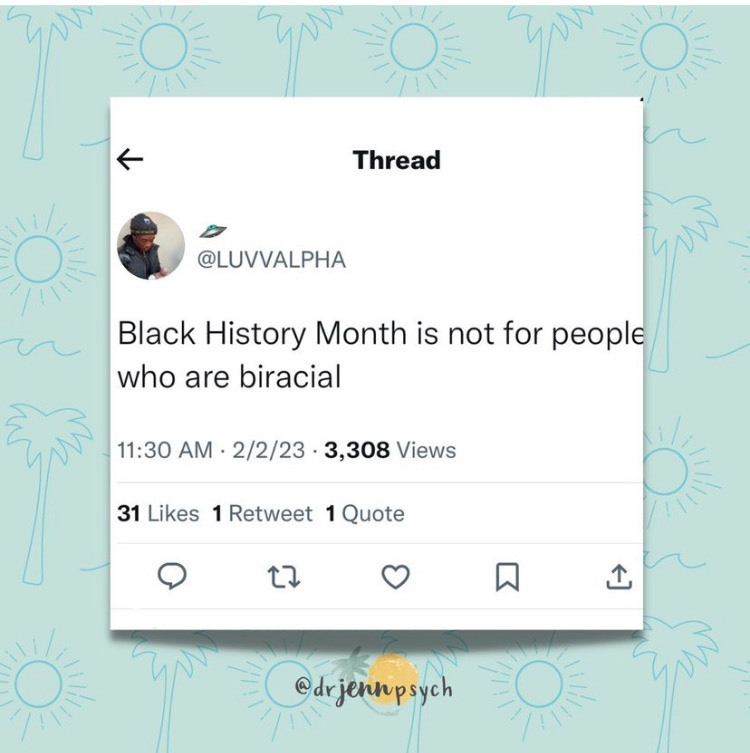Can Mixed People Celebrate Black History Month?
Uncovering the rules around Black History Month.
I casually picked up my phone and tapped on the Instagram icon. My thumb swiped up as my eyes scanned pictures and reels depicting everything from the best must-have hair products, book reviews, and dream vacation destinations to inspirational quotes, Bible verses, and hot takes on social issues.
I follow several accounts that cover topics from a Mixed …




